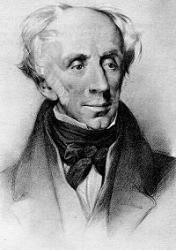Planning worship?
Check out our sister site, ZeteoSearch.org,
for 20+ additional resources related to your search.
- |
User Links
Person Results
William Knapp

1698 - 1768 Composer of "WAREHAM" in The Cyber Hymnal Born: 1698, Wareham, Dorsetshire, England.
Died: September 26, 1768, Poole, Dorsetshire, England.
Buried: Poole, Dorsetshire, England.
William Knapp
E. J. Hopkins

1818 - 1901 Person Name: Edward J. Hopkins, 1818 - 1901 Harmonizer of "BUCKLEBURY" in Christian Youth Hymnal Dr Edward John Hopkins MusDoc United Kingdom 1818-1901. Born at Westminster, England, the son of a clarinetist with the Royal Opera House orchestra, he became an organist (as did two of his brothers) and a composer. In 1826 he became a chorister of the Chapel Royal and sang at the coronation of King William IV in Westminster Abbey. He also sang in the choir of St. Paul’s Cathedral, a double schedule requiring skill and dexterity. On Sunday evenings he would play the outgoing voluntary at St. Martin’s in-the-field. He left Chapel Royal in 1834 and started studying organ construction at two organ factories. He took an appointment at Mitcham Church as organist at age 16, winning an audition against other organists. Four years later he became organist at the Church of St. Peter, Islington. In 1841 he became organist at St. Luke’s, Berwick St., Soho. Two Years later he was organist at Temple Church, which had a historic organ (built in 1683). He held this position for 55 years. In 1845 he married Sarah Lovett, and they had four sons and five daughters. He was closely associated with the Bach Society and was organist for the first English performances of Bach’s St. Matthew Passion. In 1855 he collaborated with Edward Rimbault publishing “The organ, its history and construction” (3 editions 1855-70-77). In 1864 he was one of the founders of the “College of organists”. In 1882 he received an honorary Doctorate of Music from the Archbishop of Canterbury. He composed 30+ hymn tunes and some psalm chants, used by the Church of England. He died in London, England.
John Perry
E. J. Hopkins
William Wordsworth

1770 - 1850 Author of "The Laborer's Noon-Day Hymn" in The Cyber Hymnal Wordsworth, William, the poet, the son of an attorney, was born at Cockermouth in 1770, and educated at St. John's College, Cambridge, where he graduated B.A. in 1791. Devoting himself to literature, and especially to poetry, he gradually rose into the front rank of English poets. His works include Lyrical Ballads, 1798; Poems; The Prelude; The Excursion, 1814, &c. All his poetical productions were collected and republished under his own supervision in 7 vols., in 1842. He died at Kydal Mount, near Grasmere, in 1850. Notwithstanding his rank and reputation as a poet, his pieces used as hymns are limited to the following extracts from his poems:—
1. Not seldom clad in radiant vest. Christ, the Unchangeable. This is No. v. of five "Inscriptions supposed to be found In and near a Hermit's cell, 1818." It is in 5 stanzas of 4 lines, and is given in his Poetical Works, 1831, vol. iii., p. 290. It is in Stowell's Selection of Hymns, 1831-77; the American Plymouth Collection, 1855, &c.
2. Up to the throne of God is borne. Noonday. This is entitled "The Labourer's Noon-Day Hymn," is dated 1834, and is in 6 stanzas of 4 lines. (Poetical Work, 1837, vol. v. p. 122.) It is in common use in an abridged form, beginning with stanza i., and the latter part is also given in Martineau's Hymns, 1840, as "Look up to heaven, the industrious sun," as No. 535.
-- John Julian, Dictionary of Hymnology (1907)
William Wordsworth
Berthold Tours
1838 - 1897 Person Name: B. Tours Composer of "[Up to the throne of God is borne]" in The Westminster Abbey Hymn-Book
Berthold Tours


 My Starred Hymns
My Starred Hymns


